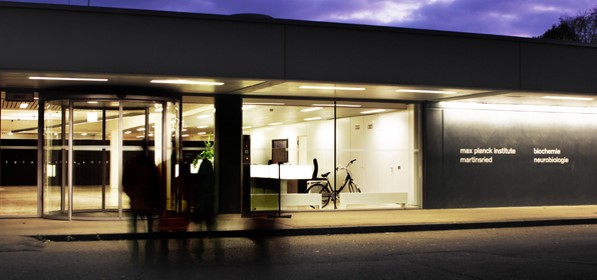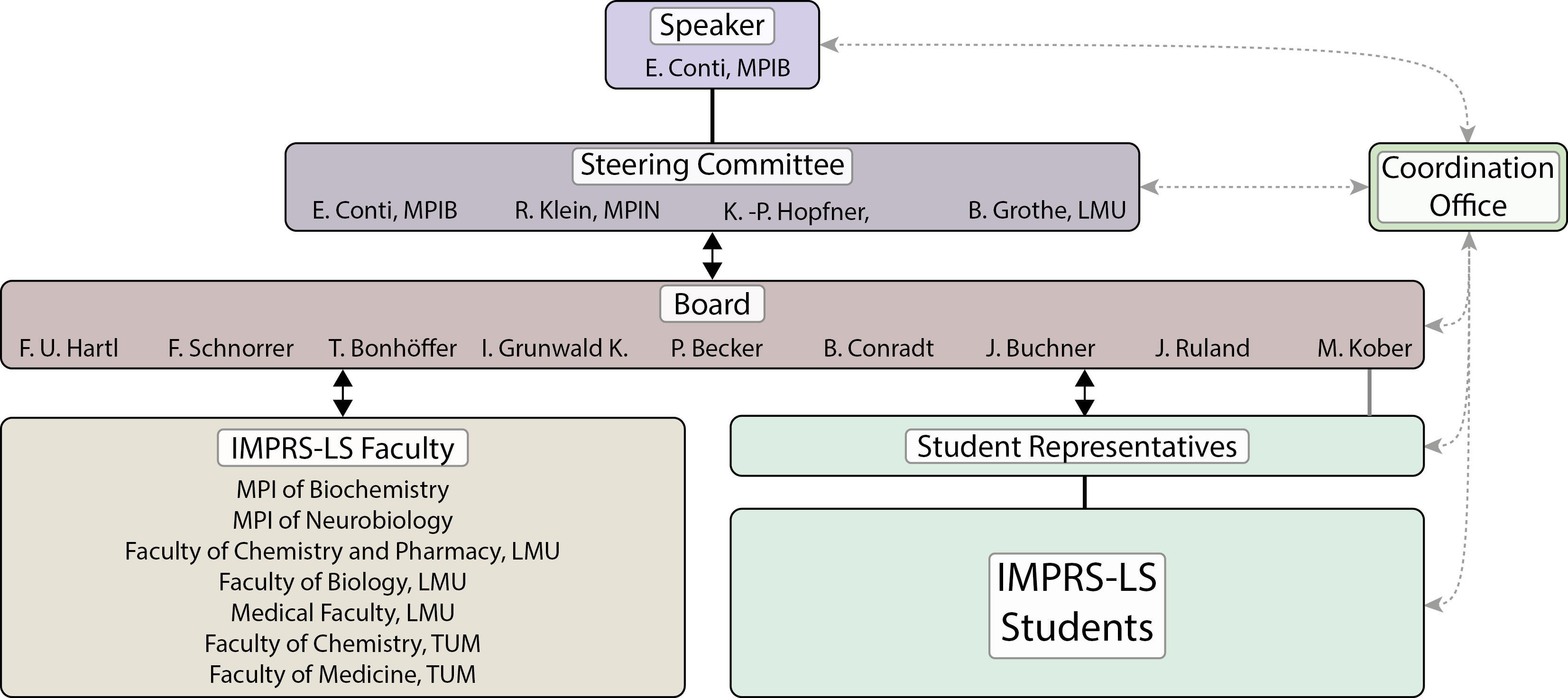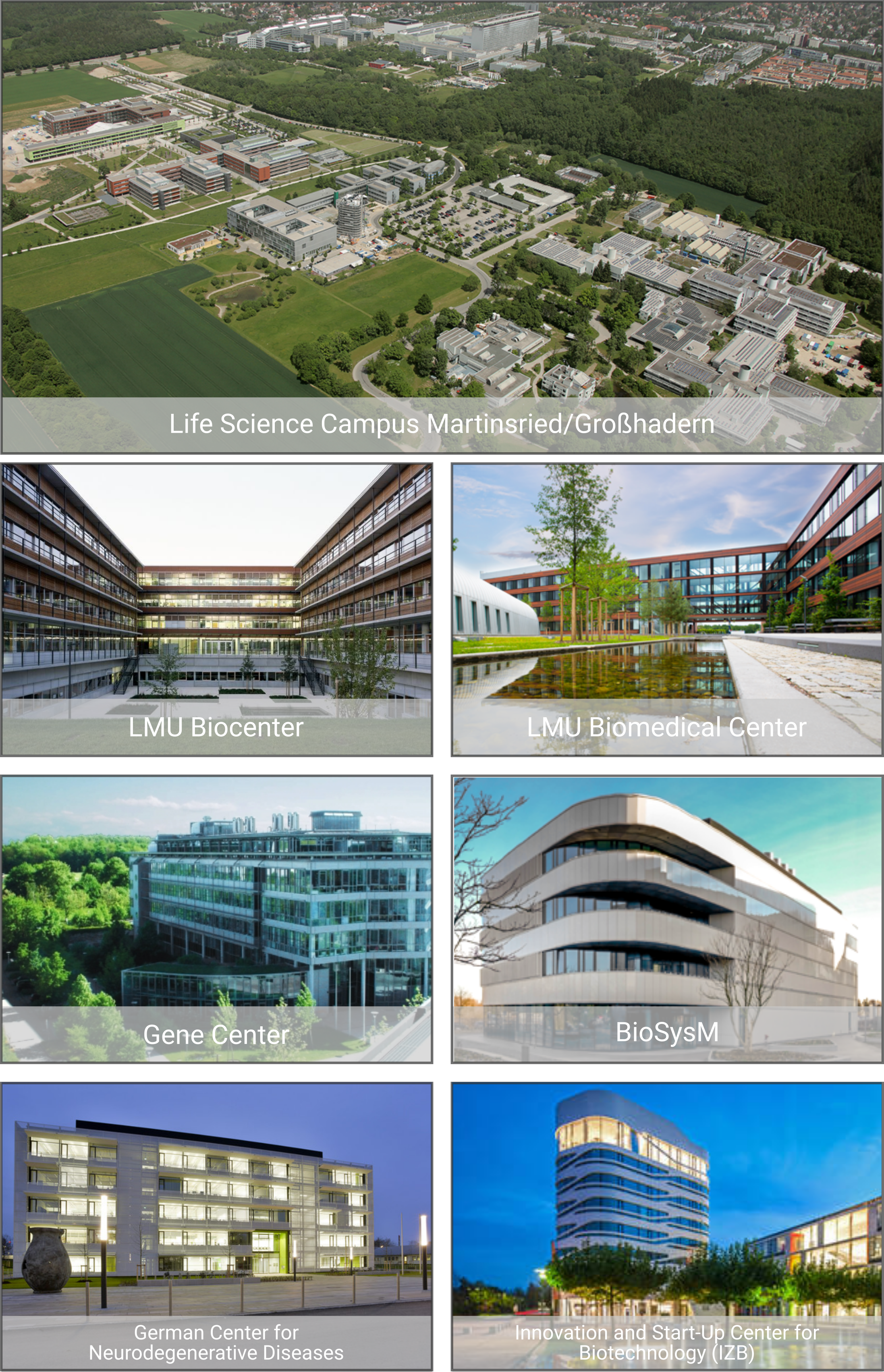About Us
The IMPRS for Molecular Life Sciences: From Biological Structures to Neural Circuits is a center of excellence for the training of PhD students in the areas of biochemistry, cell biology, molecular medicine, neurobiology and structural biology. The research school takes an interdisciplinary approach to integrate these different research areas to provide a multidisciplinary PhD program. IMPRS acts as a platform to encourage better networking and scientific exchange as an integral part of our doctoral training. In addition to high level scientific training in a top-class research environment, the IMPRS-LS offers a comprehensive curriculum of further training and activities. The curricular program covers a wide array of transferable skills and includes multi-step career mentoring, specifically aimed at preparing our doctoral students for the challenges of a professional career on the global market, whether that be in academia, industry, or beyond.
With around 160 current students and 60 faculty members, the IMPRS-LS here in Munich is one of the largest International Max Planck Research Schools in Germany. Whilst the research school has expanded substantially in the last decade, we aim to maintain the close relationship with our students and the familiar atmosphere which characterizes our program.
The IMPRS-LS is operated by the MPI of Biochemistry and the MPI for Biological Intelligence but also works in close collaboration with the Ludwig-Maximilians-Universität (LMU) and the Technische Universität München (TUM). Our students are either based at one of the MPIs or conduct their research at one of our partner universities. IMPRS-LS is proud to work with the LMU and TUM, which consistently rank amongst the best universities in Germany. To find out more about our institutional partners, and the organizational structure of our program and the research facilities, please see below.

Institutional partners
IMPRS-LS has 4 institutional partners, namely the two Max Planck Institutes; the MPI of Biochemistry (MPIB) and the MPI for Biological Intelligence (MPI-BI), and the Munich based universities; the Ludwig-Maximilians-Universität (LMU) and the Technische Universität München (TUM).
 The MPIB is one of the largest institutes of the Max Planck society and employs around 850 staff from all over the world. Around 25 different research groups are hosted within the institute and their work focuses on uncovering the structure of proteins and their mechanism of function, from molecules to whole organisms.
The MPIB is one of the largest institutes of the Max Planck society and employs around 850 staff from all over the world. Around 25 different research groups are hosted within the institute and their work focuses on uncovering the structure of proteins and their mechanism of function, from molecules to whole organisms.
 Scientists within the neighboring MPI-BI focus on circuit neuroscience and employ the latest techniques in genetics, molecular biology, biophysics, computer simulations and advanced bioimaging to uncover the basic functions, structure and development of the nervous system. The institute is currently home to 12 different research groups.
Scientists within the neighboring MPI-BI focus on circuit neuroscience and employ the latest techniques in genetics, molecular biology, biophysics, computer simulations and advanced bioimaging to uncover the basic functions, structure and development of the nervous system. The institute is currently home to 12 different research groups.
 Both the LMU and TUM are amongst the largest universities in Germany and are recognized as belonging to Europe’s top academic institutions, both in terms of teaching and research. In recognition of this, both universities are recipients of funding from the “Excellence initiative”, an initiative lead by the German government to further the achievements of already outstanding German universities.
Both the LMU and TUM are amongst the largest universities in Germany and are recognized as belonging to Europe’s top academic institutions, both in terms of teaching and research. In recognition of this, both universities are recipients of funding from the “Excellence initiative”, an initiative lead by the German government to further the achievements of already outstanding German universities.
Within the LMU, IMPRS-LS cooperates primarily with the Faculty of Biology, the GeneCenter and the Medical Faculty. Within the TUM, IMPRS-LS cooperates primarily with the Faculty of Chemistry and the Faculty of Medicine.
Organizational structure
The IMPRS-LS program is overseen by four different entities:
- The Steering Committee
- The Board
- The Arbitration Panel for Supervision and Mentoring (APSM)
- The Coordination Office
The steering committee is responsible for making decisions regarding all important matters of the research school including the budget, rules and regulations and the affiliation of new faulty members. Four members comprise the steering committee; two members from the Max Planck Institutes and two members from our university partners.
The current members of the steering committee are:
- Prof. Dr. Elena Conti, MPI of Biochemistry (Speaker)
- Prof. Dr. Rüdiger Klein, MPI for Biological Intelligence (Vice Speaker)
- Prof. Dr. Benedikt Grothe, LMU
- Prof. Dr. Karl Peter Hopfner, LMU

Overview of the IMPRS-LS organizational structure.
Members of the IMPRS-LS Board consult and advise the steering committee in organizational matters related to the research school and represent the interests of the participating institutions. The board comprises 9 representatives from the MPIs and participating university faculties and, importantly, also includes one student representative responsible for communicating matters important to IMPRS-LS students.
On the rare occasion that disagreements between PhD students and supervisors cannot be resolved internally, the APSM mediates to help to resolve any conflicts.
Finally, the coordination office is responsible for implementing aspects of the IMPRS-LS program and is in constant communication with the steering committee, board and IMPRS-LS students.
The life science campus
The IMPRS-LS program is based within the very active life science campus “Martinsried-Großhadern” in the south west area of the city. The Campus is easy to reach from the city center with public transport using the U-bahn (underground) or by bus.
The life science campus is homebase for several hundred doctoral students, medical students and undergraduate students enrolled in various Bachelor and Master programs.
In the immediate area of the Max Planck Institute of Biochemistry and Neurobiology are several state of the art research facilities and scientific institutes, including the LMU Biocenter, the LMU Biomedical Center, the LMU Gene Center, the LMU Research Center for Molecular Biosystems (BioSysM), the Medical Faculty and the German Center for Neurodegenerative Diseases, and the Innovation and Start up Center for Biotechnology (IZB)
The area attracts continual and substantial investment and is gradually being further expanded to extend existing facilities. The establishment of a new LMU Institute for Chemical Epigenetics has recently been approved and will further cement the Campus Martinsried/Großhadern status as a leader in life science teaching and research.

